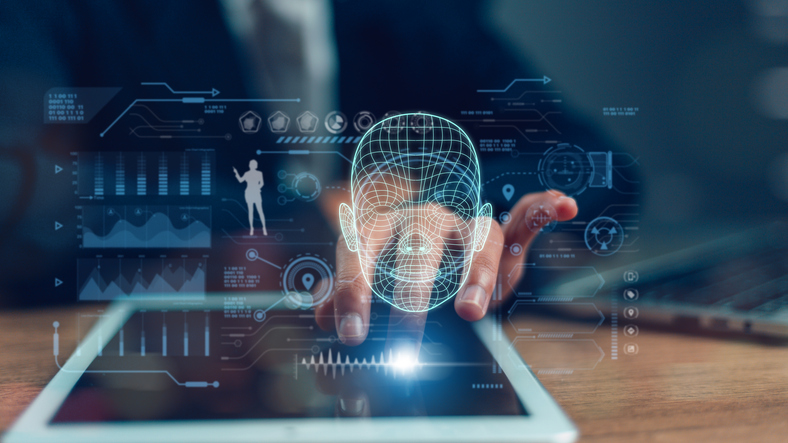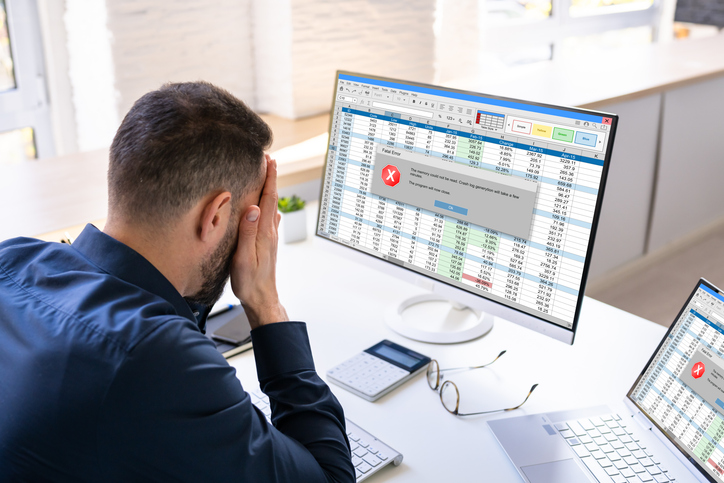
Preventing theft of your money is a key aspect of looking after your money.
Data security is defined as the practice of protecting digital information from unauthorised access,
corruption, or theft.
The reason data security is important, is to prevent someone from
impersonating you for their financial gain. There is always financial gain behind it, otherwise no one
would bother. This is how it works, the piece of crap fraudster impersonates you, so they gain the
ability to move your money to them. It's really that simple but happens in a variety of different
ways.
For example, to impersonate you at your bank's website, all that is required is your
banking username and password. These two pieces of data will allow someone to log on to your bank's
website, pretending to be you, and move your money from your account to another account. There
is no reason to provide anyone access to your internet banking, ever.
Fortunately,
although there are some really smart thieving scumbags there are also some incredibly smart people
working against them. But you still have to do your bit. You need to think carefully about your where
your data is stored. In our modern convenient world, data is used to provide credentials to authenticate
people.
Here is a list of data that will allow someone to take your funds.
Before you hand over sensitive data like your credit card or bank account details, to any individual or company, there are two critical risks you should seriously consider.
Remember: if the bank that issued your credit card wanted someone else to have your
information, they would have sent it to them directly. They don’t, and there’s a reason for that. So,
before you share your financial details with any person or organisation, ask yourself a simple question:
Would you hand them your physical credit card to use? Because in today’s digital world,
giving someone access to your card data is essentially the same thing as handing them your card. If they
have the information, they have the power to use it.
We use a company called Stripe to collect
payments from our subscribers. A lot of companies also use Stripe because of their robust security
practices, PCI DSS (Payment Card Industry Data Security Standard) compliance, and very advanced tools to
secure your data. Stripe handles payment details securely and utilises encryption to protect sensitive
information both in transit and at rest. They also offer built-in fraud detection tools and support
compliance with industry standards. And they spend millions ensuring that their customers data is
secure. We have to pay for the service but think it's worthwhile to protect our
customers.

Last week I went to the doctors. A few days before my appointment I got a text to
confirm my appointment and a request to put in my credit card details in to an app so that they would
have these details on file. The pretext was to make it easier for me to pay them, as though pulling
my credit card out of my phone is difficult, it's already tap and go.
So what is
the advantage in a doctors surgery holding credit card details? I understand that they may have had
issues with people not paying in the past, or had to spend time chasing debts, but that's an
unfortunate part of business.
The disadvantage to me is that now there is somewhere else that
has my credit card details and sufficient details to make fraudulent purchases on my card. So if a
fraudulent purchases was made, who is liable? Unfortunately it's quite possibly me, as I was stupid
enough to allow someone to have my credit card details to be "kept on file". I have
unintentionally have contributed to the loss.
I am sure that there is no way that the doctor
would in anyway deliberately defrauded me. However he was dumb enough to actively encourage another
company to have my credit card details. This just makes it easier for someone to steal my information as
there is yet another place it resides. If someone broke into their system would it be better for me if
my card data was not stored there? Even clever people can be manipulated.
It's
often the nicest people who are recruited to put themselves at risk for someone else's financial
gain. At the point you need a doctor you are not concerned with data security, so you are an easy
target.
I am all for my medical records being on-line and available to doctors, but I do not
need to risk my credit card data there too. And that is a key aspect of data protection, making sure
that the right people have access to the data they need and only the data they need.

This is not an advertisement for apple pay but, they do offer protection against one of the major causes of financial crime, which is when your credit/debit card data is captured and used fraudulently. When you use apple pay your credit/debit card data is never shared with anyone.

Directly asking for your data isn’t the only way someone can steal it. There are
more subtle and often more dangerous methods that attackers use, many of which involve malicious
software.
For example, a common tactic is to trick you into installing software that
silently records everything you type. This kind of malware, known as a keylogger, waits
for you to visit a banking website, then captures your login details and sends them off to the attacker
all without you ever knowing.
That’s why it’s so important to be cautious about
the software you install on your computer or phone. Every app you download has the potential to access
your files, monitor your activity, and, in the worst cases, send out your sensitive data without your
consent.
It really comes down to trust: how much do you trust the apps you install not to
abuse their access?
Reputable app stores like the Apple App Store and GooglePlay
Store do a lot of work behind the scenes to protect users. They actively scan apps for
suspicious behaviour and enforce strict guidelines to reduce the risk of malware. While not perfect,
they offer a much safer experience compared to downloading apps directly from random websites.
Be
especially wary of programs you find on the open internet. Hackers will often disguise harmful software
as useful tools or free downloads to trick you into installing them. Once installed, these apps can
steal your personal data, take control of your accounts, or even lock you out of your own devices.

From a security standpoint, downloading an Excel spreadsheet with macros (file
extension .xslm) from the internet is a terrible idea. The same technology that allows you to write a
simple excel macro to send an email when a specific number changes in a spreadsheet, is the same
technology that allows a hacker to help themselves to your data from your computer,
read more here.
There are plenty of people who want to share an amazing way to organise your
finances by downloading their spreadsheet. Some may be legitimate and some not might be. The question
you have to ask yourself, is it worth the risk?
You’ve probably seen them before—those flashing pop-ups while browsing the web that
scream:
“YOUR COMPUTER IS INFECTED!! CLICK HERE OR CALL US IMMEDIATELY TO REMOVE THE
VIRUS!”
Let’s be clear: it’s complete rubbish.
A web browser
cannot directly access files on your computer without your explicit permission. Modern
browsers are built with strong security protections specifically to prevent websites from poking around
in your file system. This is a core privacy and security feature there to keep you safe.
So, no,
those pop-ups can’t tell if your machine has a virus. They’re just scare tactics. Think about it: do you
ever see reputable antivirus companies like Norton or Symantec claiming they can magically scan your
device through your browser? These scareware tactics are designed to trick you into panicking and
handing over access to your money. Don't fall for it.
Phishing is a type of cyberattack where scammers try to trick you into giving up
personal information, usually to gain access to your money, by pretending to be someone you trust. To
gain that trust, they may impersonate a legitimate business or authority, using bits of your own
information against you.
It often starts small:they say your name, then maybe your date of birth,
or your address. Where do they get this? Sometimes from data breaches, like when a utility company gets
hacked because they didn’t take your privacy seriously. Why an electricity provider needs your date of
birth in the first place is still a mystery.
These scams can come in many forms: phone calls
asking you to "confirm" personal details, emails disguised as official notices, or text
messages claiming urgency. The common tactic is pressure, they’ll try to create a false sense of urgency
to rush you into acting without thinking, before you have time to question what’s really going on.
Don’t rush into something that could have negative consequences. The bank does not need your
login details or pin number to do anything. If they do call explaining that you may have been the victim
of fraudulent activity on your credit card, sure provide the authority to place a block on the card.
They don’t need your pin number to do this. If in any doubt call them back on the internet listed
number, not a number they have texted or emailed you.
Hopefully, this has helped you think more carefully about your financial data and
how to protect yourself from potential threats.
Whenever someone asks for your financial
information, take a moment to consider: do they genuinely need it? Is sharing it in your best interest,
or theirs? How insistent are they? Are they trying to help you, or just gain access to your
money?
If you receive an unsolicited call, be cautious as it could be a scam. Ask yourself who
made the call. If they called you, why should you hand over your personal information just so they can
verify you? If in doubt the decent companies and corporations have their numbers listed on their
website, you can always call them back.
That Nigerian prince that wants you to pay for his flight
out because all his cash is tied up, and the Russian supermodel asking for your credit card to book a
hotel room for the two of you, they are both fake and someone is trying to scam you. Let’s not fall for
that.
Lastly please, don’t download Excel spreadsheets from the internet. Instead, use a trusted
web app that’s built with your safety in mind, like this one!
Disclaimer: We are not financial advisers. The information on this website is general in nature and does not take into account your individual circumstances. You should seek independent professional advice before making financial decisions.